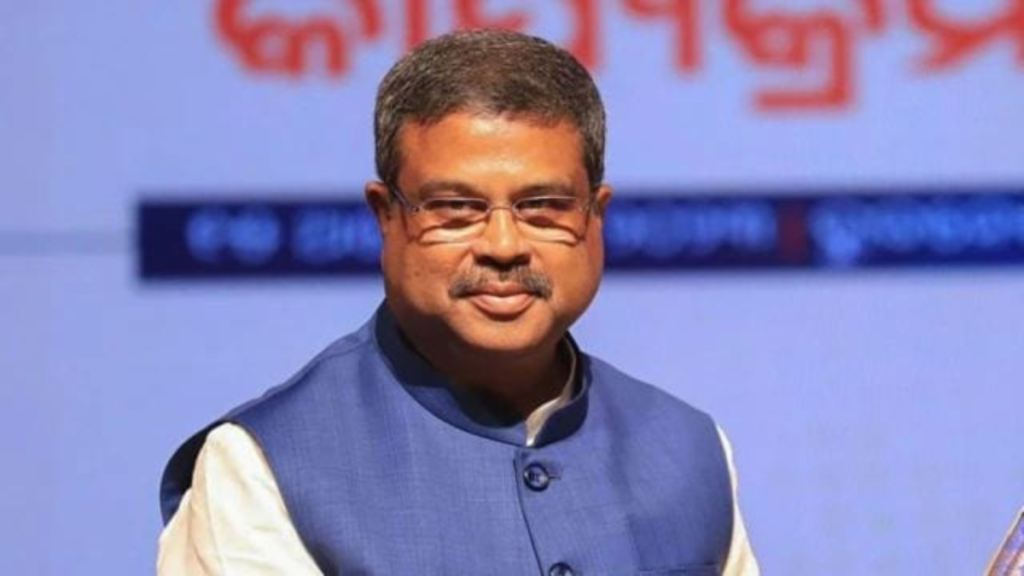B.El.Ed discontinuation has triggered international outrage, with some of the world’s most prominent educationists writing to India’s Education Minister Dharmendra Pradhan to withdraw the decision. In a forcefully worded letter, 15 international scholars cautioned that eliminating the Bachelor of Elementary Education (B.El.Ed) programme would be counter-productive and harm the future of elementary education in India.
The letter is in reaction to the National Council for Teacher Education (NCTE) draft regulations, published in February 2025, that hinted at phasing out the B.El.Ed programme by the 2026–27 academic session. The guidelines compel all existing institutions imparting B.El.Ed to switch to the Integrated Teacher Education Programme (ITEP), a standardised four-year programme in tune with the National Education Policy (NEP) 2020.
The discontinuation of B.El.Ed, the signatories said, risks undermining decades of improvement in quality teacher education. “The B.El.Ed is a flagship teacher education programme that has survived for more than 30 years and demonstrated its value. To disband it now, when its value is acknowledged internationally, is short-sighted and retrograde,” the academics wrote.
Among the signatories are a few of the world’s most celebrated educationists: Prof Michael Apple (University of Wisconsin), Prof William Pinar (University of British Columbia), Prof Robin Alexander (University of Cambridge), and Prof Martin Carnoy (Stanford University), among others. The appeal highlights the global reputation of B.El.Ed, referring to it as a rare instance of innovation in teacher preparation, which is both respected in India and globally.

How will the discontinuation of B.El.Ed affect India’s pledge for inclusive and quality teacher education?
The step to introduce the B.El.Ed discontinuation has set off a wider debate on uniformity vs. innovation in teacher training. The global scholars contend that the B.El.Ed program brings together academic substance with teacher training in a manner that surpasses most Western systems. “It is an advanced type of preparation for elementary school teachers than is generally accessible even in developed nations,” the letter said.
The B.El.Ed programme, introduced by Delhi University three decades ago, was India’s first full-fledged undergraduate course in elementary teacher education. With its curriculum incorporating courses like child development, psychology, philosophy, linguistics, sociology, educational theory, storytelling, drama, and gender inclusion, the programme has been instrumental in producing competent, confident, and reflective practitioners for India’s elementary schools.
The academics’ letter asserted that B.El.Ed discontinuation would mean the disappearance of a programme that equips teachers not only with professional skill but also with intellectual autonomy to construct democratic citizenship. They cautioned that the step is reminiscent of colonial practices, which sought to curtail teachers’ autonomy and status, diluting education’s transformative power in society.
As ITEP is being launched to simplify and synchronize teacher training with the NEP 2020, critics opine that a “one-size-fits-all” approach dilutes diversity and institutional adaptability. The ITEP program, which has already been piloted in some institutions since the 2023–24 academic year, is planned to be implemented at full scale in 2025–26.
The global experts also emphasized that B.El.Ed discontinuation overlooks the programme’s impact on analogous courses introduced in India’s premier private and public universities. Its challenging coursework, research-oriented focus, and classroom practicum have been a model for liberal arts-based teacher education throughout the nation.
Also signed is the letter are Prof Edward Vickers (UNESCO Chair, Kyushu University, Japan), Prof Yusuf Sayeed (University of Cambridge), Prof Paul Morris (UCL), Prof Crain Soudien (University of Cape Town), and Prof Ken Zeichner (University of Washington), some of whom have been active with Indian education reform initiatives for decades. It should be mentioned here that Prof Apple and Prof Alexander were erstwhile advisory board members of NCTE’s Indian Journal of Teacher Education.
The discontinuation of B.El.Ed has also been criticized by local education specialists, alumni, students, and civil society organizations. Delhi University and affiliated college protests, petitions, and public campaigns have sprung up, appealing to the Ministry to save the course. Education departments have warned that substituting B.El.Ed with ITEP would decrease training standards and be unable to respond to the particular requirements of India’s elementary education.
B.El.Ed has always been regarded as a reform-minded response to the fragmented and old-fashioned teacher training systems that predated the 1990s. Its supporters claim that it produced a generation of teachers who not only have a deep understanding of their subjects but also respect the diversity of learners and contexts they teach in.
In spite of these achievements, the government’s justification for B.El.Ed discontinuation is still connected to NEP 2020’s vision of standardizing teacher education through integrated four-year degrees (BA/BSc/BCom + B.Ed). Critics, however, claim that B.El.Ed already satisfies and surpasses these goals and should be increased—not eliminated.
As things are, institutions already offering B.El.Ed programmes will have to start shifting towards ITEP well before the 2026–27 academic session, unless the Ministry changes its mind. The NCTE draft regulations are pending for now, providing a narrow window of opportunity for intervention by stakeholders.
The global appeal ends with an invitation for evidence-based policy-making based on consultation and scholarly merit. “When innovation bears fruit, it should be nurtured, not destroyed,” the letter says. “The B.El.Ed discontinuation plan not only threatens to reverse decades of educational advance but also sends a disturbing signal about the future of teacher education in India.”
With mounting pressure from both domestic and global academic communities, the future of B.El.Ed now hinges on the government’s willingness to engage in constructive dialogue and uphold India’s legacy of educational excellence.
ALSO READ
Supreme Court Steps In: Teacher Recruitment Must End by December
Assam CM Calls for Enhanced NEET Security and Format Changes Ahead of 2025 Exam
Pingback: Tamil Nadu School Error Costs SC Student Two Years -
Pingback: How to Download Your JEE Advanced 2025 Hall Ticket Live Updates -